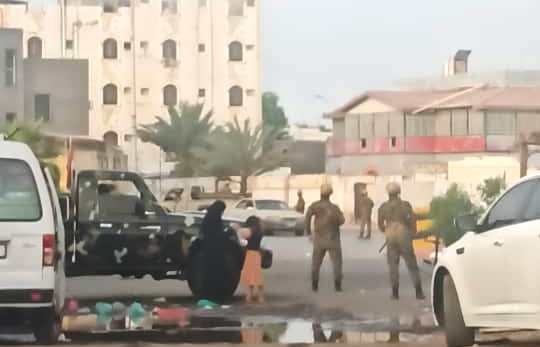Human rights reports, including those issued by the Gulf Centre for Human Rights and the Euro-Mediterranean Human Rights Monitor, confirm that press and civil liberties in southern Yemen are facing a sharp deterioration, amid a repressive security environment in which the de facto authorities employ various methods to silence dissenting voices, including raids, arrests, beatings, defamation, and restrictions on media work.
In the Socotra Archipelago Governorate, forces affiliated with the Transitional Council militias kidnapped journalist Nawar Ahmed Shaaban after raiding his home. The kidnapping is because of posts he had published on social media criticizing the practices of the Transitional Council militias in the governorate.
This kidnapping was met with widespread condemnation by local journalists and activists, who considered it a blatant assault on freedom of opinion and expression and a violation of the Yemeni constitution and international law. They demanded the immediate release of the kidnapped journalist and held the Transitional Council militias fully responsible for his safety.
In Aden, security forces affiliated with the Transitional Council militias recently arrested civil society activist Fouad Al-Diqan for participating in a peaceful demonstration demanding improved basic services, particularly electricity. Local sources described the charges against him as “incitement,” while eyewitnesses confirmed that he had not committed any act deemed incitement.
This comes amid escalating popular protests in Aden against the ongoing collapse of services and deteriorating living conditions. Citizens accuse the Transitional Council militias of failing to administer the city and prioritizing security and political interests over the needs of the population.
In Al Mahrah Governorate, Najem Mohammed Za’banut, a journalist and member of the peaceful sit-in committee in Qishn District, was physically and verbally assaulted by a member of the Saudi-backed “Homeland Shield” militia while covering activities the committee deemed “destabilizing the governorate.”
The above incidents do not represent isolated, individual cases. Rather, they fall within the framework of a systematic policy of repression practiced by the controlling forces in the occupied governorates against anyone who dares to raise their voices or document violations.
Human rights organizations, including Reporters Without Borders, indicate that journalists in the southern regions face “multiple threats ranging from arrest to physical assault and defamation, often without accountability for the perpetrators.”
Meanwhile, local and international calls are mounting for the release of all those detained on the basis of their opinions or civil activism, an end to the systematic campaign against freedoms, the opening of independent and transparent investigations into incidents of assault and kidnapping, and the guarantee of a safe environment for journalistic and civil society work.


















